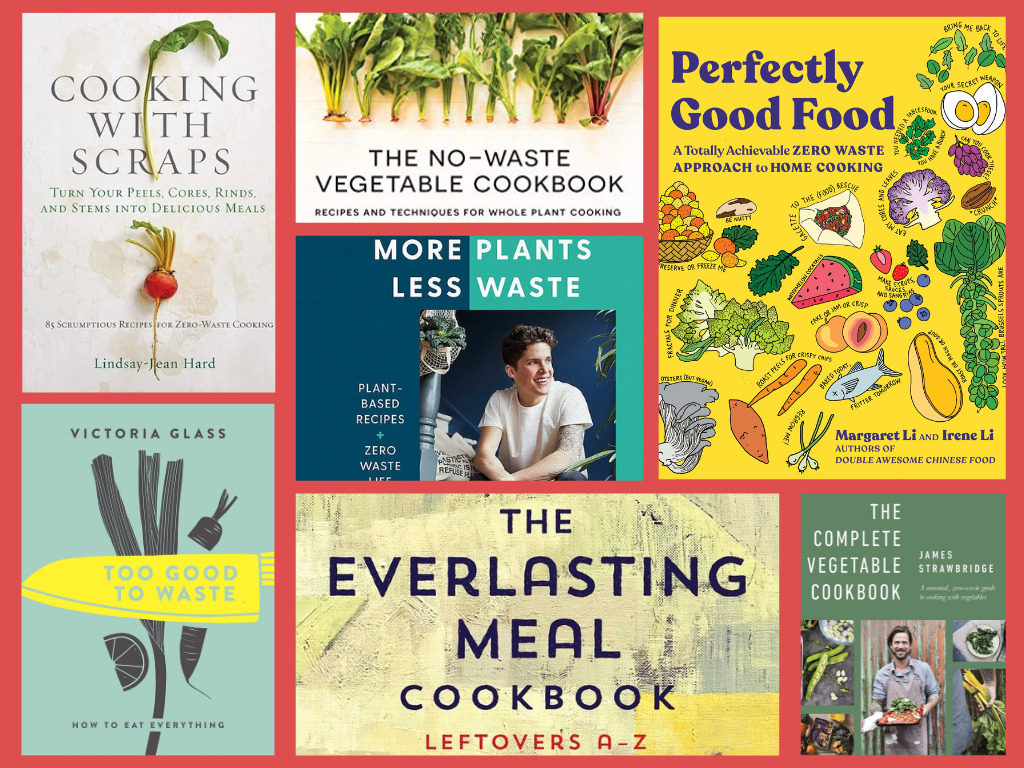7 Mins Read
With sustainable eating becoming a bigger priority for consumers post-pandemic, alongside the aim to be more frugal amid the cost-of-living crisis, cutting down on waste is more important than ever. To that end, here are some of the most innovative zero-waste cookbooks to help you eat better and cheaper.
According to the UN’s Food and Agriculture Organization, a third of all food produced goes to waste globally. In fact, if food waste were a country, it would be the third-highest emitter on the planet. It’s a major problem, both for the environment and consumers, given that 700 million people (about 9.3% of the world’s population) are now living in extreme poverty.
It’s important to minimise waste, both in what we eat and how we live. And some books help you do just that. While not an exhaustive list by any measure, here are eight of the most innovative zero-waste cookbooks helping people use what they have and spend less:
Perfectly Good Food
By Irene and Margaret Li
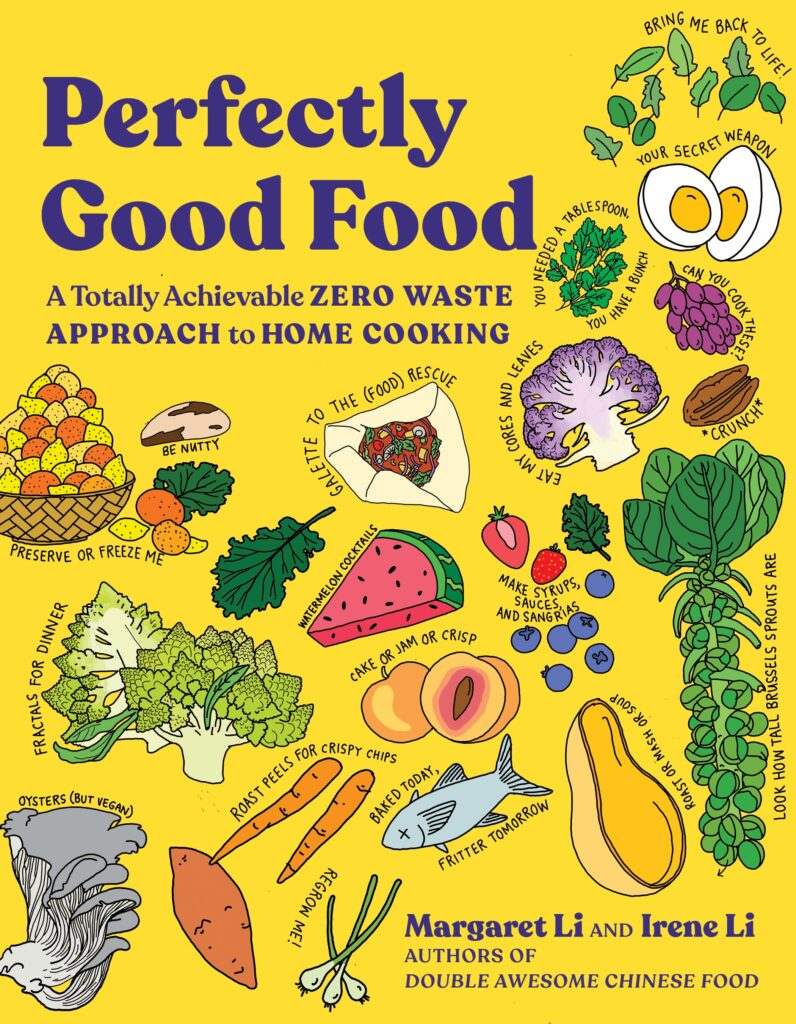
Released this June, Perfectly Good Food is the second cookbook by sisters Irene and Margaret Li, the duo behind Boston’s famous dumpling truck and café, Mei Mei.
With 80 recipes and 150 ideas to use up what your fridge and pantry have in stock, the book also contains storage, food waste and food safety tips. Written in a chatty and accessible manner, with plenty of fun and colour to go around, it’s one of Food & Wine‘s Best New Summer Cookbooks for the year.
The Lis teach you how to freeze most foods, and decode how your senses can trump shelf life and expiry dates, so you are safe in the knowledge that your kitchen has, well, Perfectly Good Food. Recipes like Make-It-Your-Own Stir-Fry and Toss-in-Any-Vegetable Stew complement How-You-Like-It Savory Pancakes and a Mix-and-Match Fruit Galette to help you make use of anything and everything in your kitchen, and ensure none of it goes to waste.
Perfectly Good Food: A Totally Achievable Zero Waste Approach to Home Cooking is available online for $28.
The Everlasting Meal Cookbook
By Tamar Adler
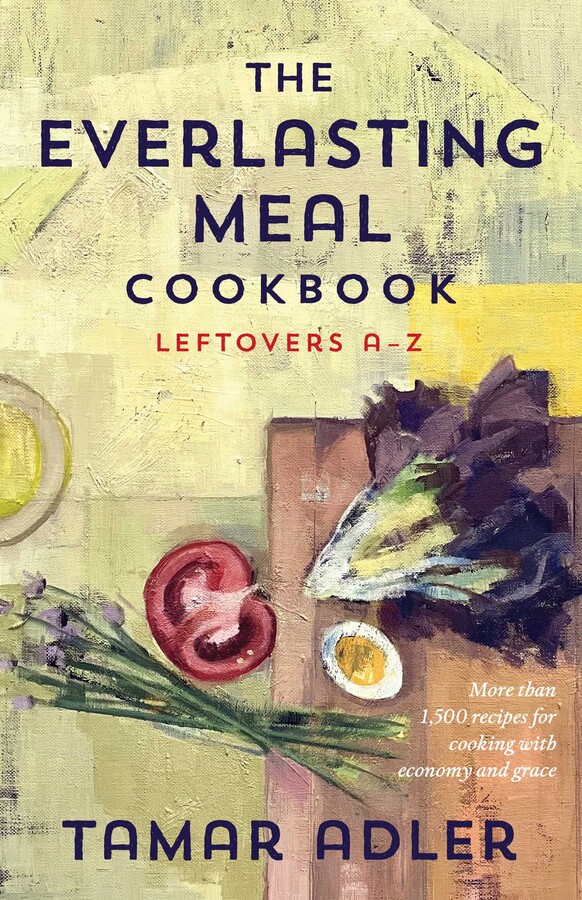
A follow-up to author and cook Tamar Adler’s 2011 food book, An Everlasting Meal, this cookbook is all about maximising your food leftovers with minimal effort. And that is showcased through the 1,500-plus recipes the book has to offer – these aren’t all individual dishes, with many pages offering more ideas to use up what your kitchen has.
The Everlasting Meal Cookbook is divided into categories like ‘fruits and nuts’, ‘smoothie, any’, and ‘shallots, too many’ to demonstrate you can transform anything into something new. Leftover-burrito fried rice and stale-doughnut bread pudding, anyone?
The book breaks moulds and pushes you to think creatively – for example, if you don’t have coriander, “anything bright and hopefully green” that’s used in hot-weather food is okay. Do you have any empty jar? Use it to make your noodle dressing or barbecue sauce. It’s a clever, frugal and eco-conscious cookbook for the time-strapped and curious.
The Everlast Meal Cookbook: Leftovers A-Z is available online for $35.
More Plants, Less Waste
By Max La Manna
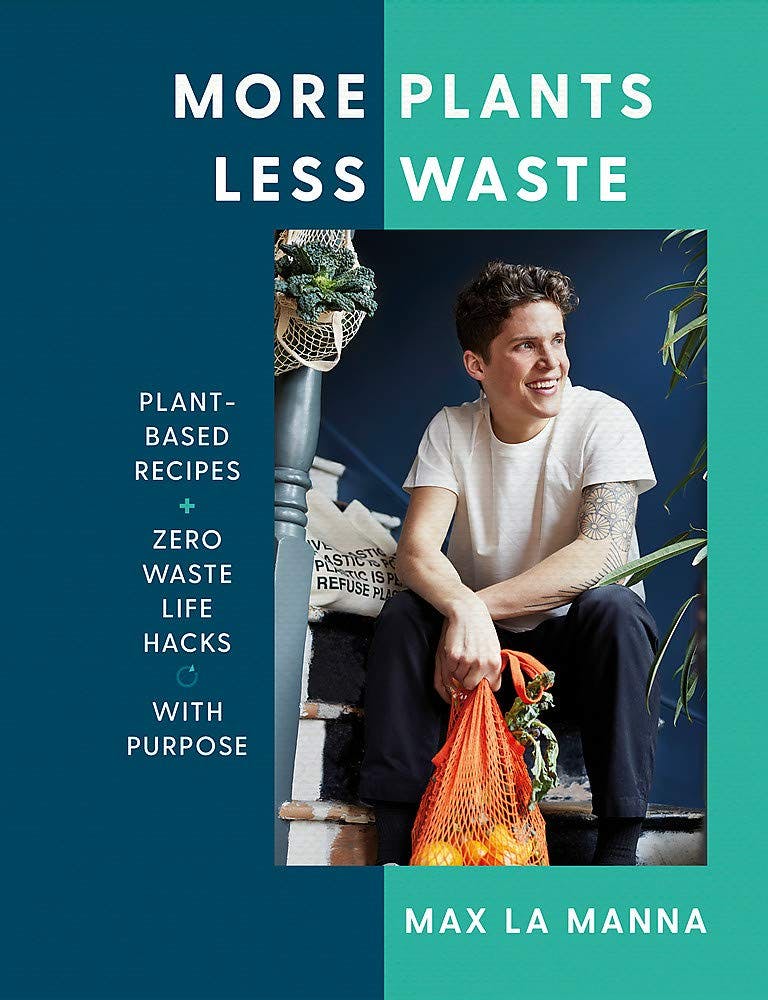
Low-waste chef and climate activist Max La Manna’s More Plants, Less Waste combines recipes and zero-waste hacks to help you live a more sustainable life. The zero-waste cookbook is entirely vegan, and also spotlights leftovers in the 80 featured dishes.
La Manna, a famous name in food media through his work with BBC Earth and the Guardian (among others), wrote this cookbook with the aim of saving the reader some money and cutting down on their food waste. More Plants, Less Waste celebrate vegetables and whole foods with recipes like Sumptuous Spag Bol, Vegan Shepherd’s Pie, Pumpkin Pasta, Crunchy Cauliflower Curry, and Leftover Veggie Nachos in a Hurry.
The book also features a 21-day zero-waste challenge, and features eco product hacks like do-it-yourself deodorant and Citrus Bomb House Cleaner.
More Plants, Less Waste: Plant-Based Recipes + Zero Waste Life Hacks with Purpose is available online for £22.
The Complete Vegetable Cookbook
By James Strawbridge
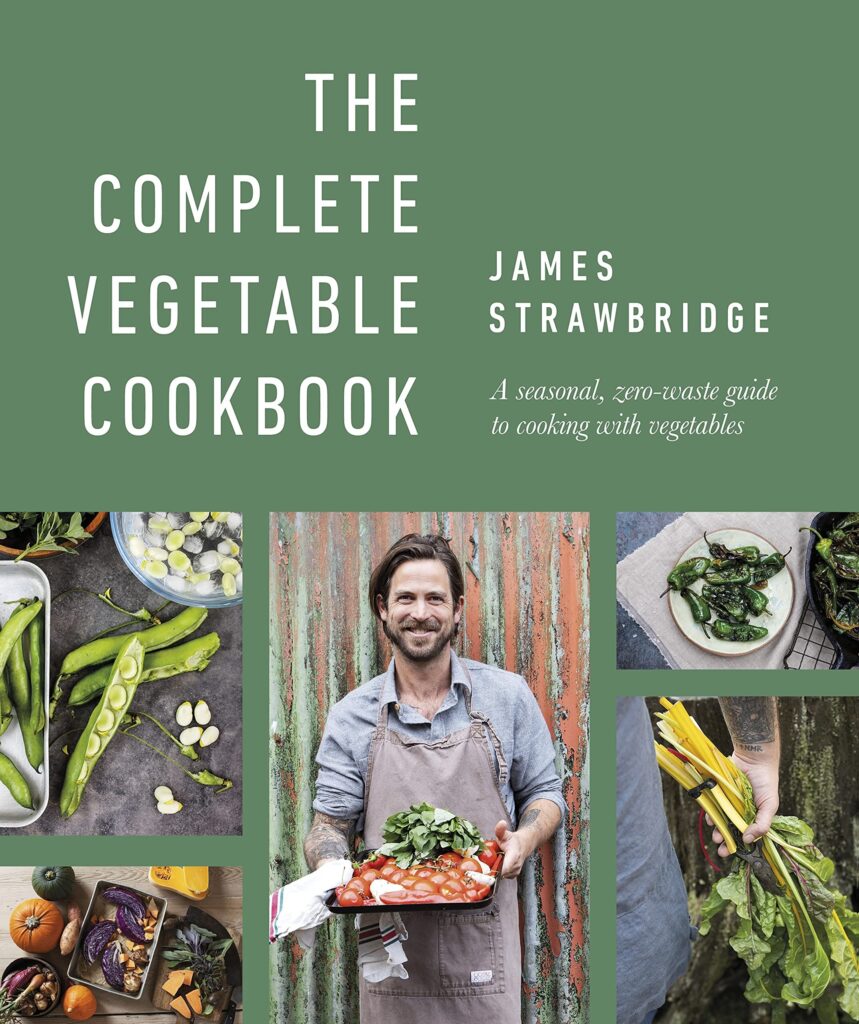
Another vegetable-forward cookbook, British chef James Strawbridge focuses on vegetarian zero-waste recipes cooking all the edible parts of your seasonal produce.
The Complete Vegetable Cookbook champions 60 vegetables over 135 mains and sides. There are annotated photos and detailed information about plant varieties and their edible parts, with zero-waste tips to make your produce last longer and solutions like stocks, picking and fermenting.
You can make use of everything that’s edible “from root to bloom”, promises Stawbridge. With recipes like fennel gratin, watercress, pear and walnut tart, cucumber peel gin, and baked aubergine tagine, this cookbook is ideal if you’re looking to grow your own veg.
The Complete Vegetable Cookbook: A Seasonal, Zero-Waste Guide to Cooking with Vegetables is available online for £25.
Too Good to Waste
By Victoria Glass
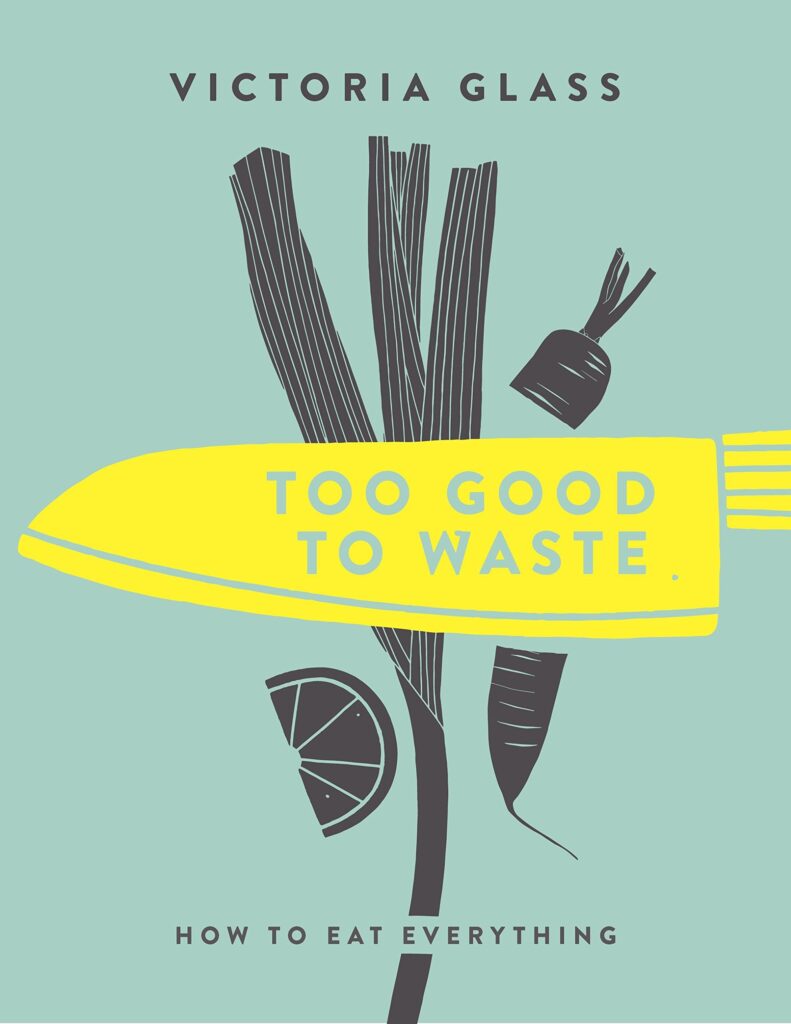
A London-based food writer with six cookbooks to her name already, Victoria Glass’s Too Good to Waste represents a departure from the rest of her catalogue. While all her other books focus on sweet treats, this one is all about getting the most out of your food.
The book itches your creativity scratch with innovative methods of using up every part of your produce possible. Think about the pumpkin for example. You could use the flesh in a pumpkin-maple cheesecake. But while many would usually throw the rest out, Glass encourages you to use the seeds in energy balls and the outer peel to make a pumpkin skin chutney.
There are also ingenious inventions like stale brown-bread ice cream, tea brewed from strawberry tops, and vegetable peel crisps.
Too Good to Waste: How to Eat Everything is available online for £14.99.
Cooking with Scraps
By Lindsay-Jean Hard
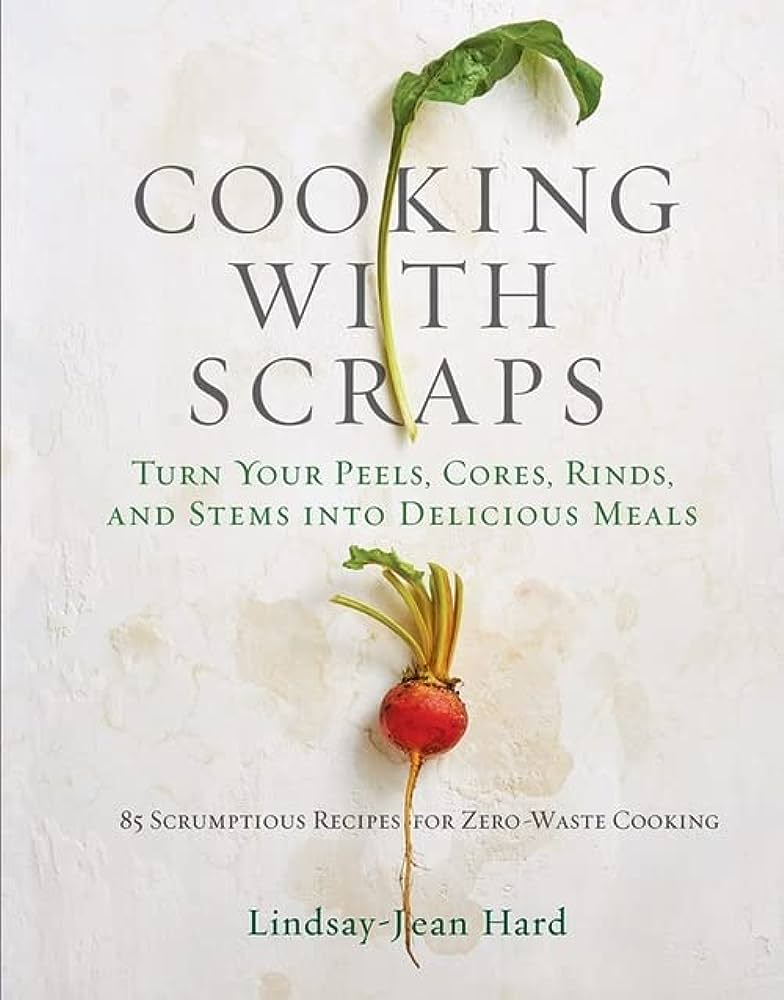
An offshoot of Lindsay-Jean Hard’s column for food website Food52, Cooking with Scraps zeroes in on the often-discarded parts of our produce – the seed, stems, peels, cores, rinds, etc. Throught 85 recipes, Hard shows you how these overlooked ingredients can be turned from “what might be considered trash into culinary treasure”.
You can make pesto from carrot tops, and put olive-oil-poached broccoli stems on your lemon-ricotta toast. As for apple cores, you can turn those into a syrup for Danish pancakes, while a watermelon rind and lime granita pairs beautifully with a basil whipped cream.
The recipes truly showcase Hard’s genius. She explains where all her ideas come from in each recipe – she discovered how to use pumpkin ‘guts’ (the webbing) when making pumpkin scones in Japan, for example. It’s a true masterclass in culinary and economic creativity.
Cooking with Scraps: Turn Your Peels, Cores, Rinds, and Stems into Delicious Meals is available online for $19.95.
The No-Waste Vegetable Cookbook
By Linda Ly
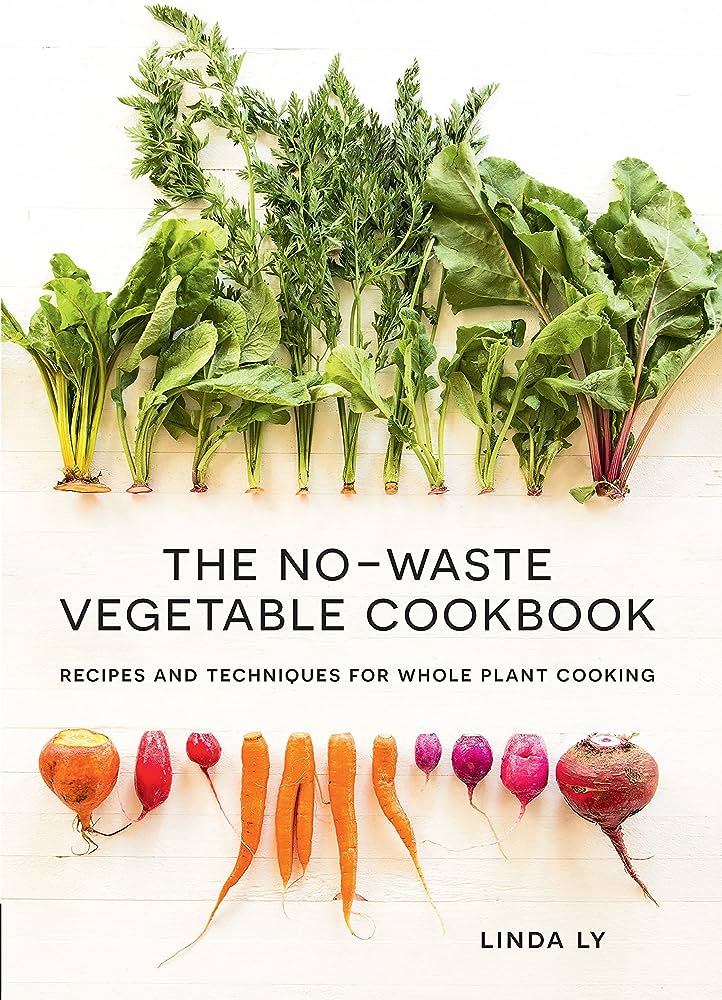
Nose-to-tail cooking, but with vegetables. That’s Linda Ly’s pitch in her zero-waste recipe book, inspired by her 2014 community-supported agriculture cookbook.
The No-Waste Vegetable Cookbook features a variety of techniques – including creative pickles and pestos – to use every edible part of a plant and eat seasonally. The book is divided into produce types: tomatoes and peppers, leafy greens, bulbs and stems, and roots and tubers, for example.
Recipes include carrot top salsa, watermelon rind kimchi, chive blossom vinegar, coriander-pepita pesto, and a spring bulgur salad with kale buds. No parts of any vegetable or fruit are safe here.
The No-Waste Vegetable Cookbook: Recipes and Techniques for Whole Plant Cooking is available online for $26.99.
Use It All
By Jaimee Edwards and Alex-Elliott Howery
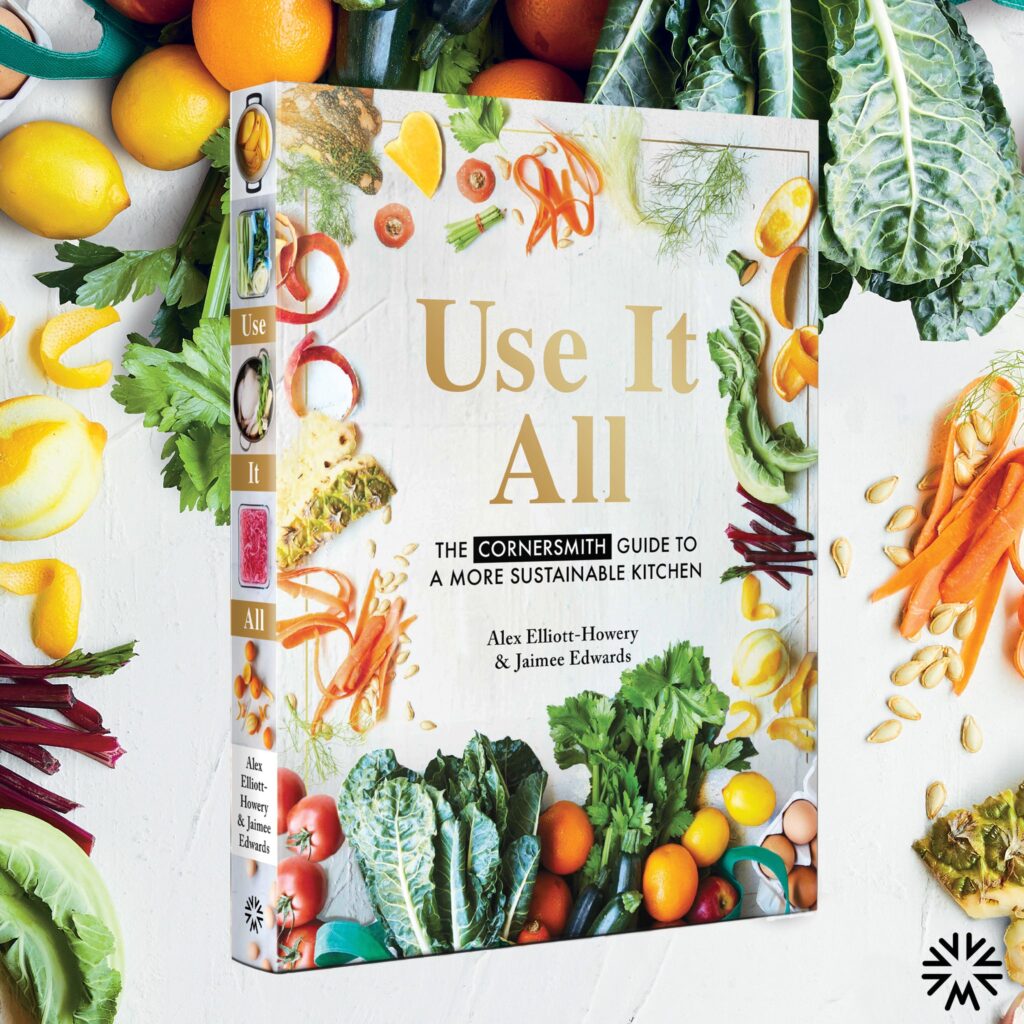
Australian ethical food business Cornersmith – which runs a café, cooking school and online shop – was founded by husband-and-wife duo Alex-Elliott Howery and James Grant. The couple has always been passionate about food waste and saving produce, and Cornersmith’s cookbook Use It All – co-written by Howery and Cornersmith teacher Jaimee Edwards is a testament to that.
“Buy less, buy whole, use it all” is the book’s mantra, as it takes you through a journey of reducing food waste while “eating generously”. The result is a lesson in “kitchen literacy”, developed after years of experimenting by the authors as they worked out how to feed their families efficiently and sustainably.
The cookbook has over 160 recipes, and the focus really is on kitchen skills to help you buy less, save money, and make the most out of what you have. Consider the broccoli: you can revive “tired” broccoli by soaking pieces with stem attached in ice-cold water in the fridge for 30 minutes. And that’s where the authors get the idea for their Tired Broccoli Toastie.
Use It All: The Cornersmith Guide to a More Sustainable Kitchen is available online for AU$40.


